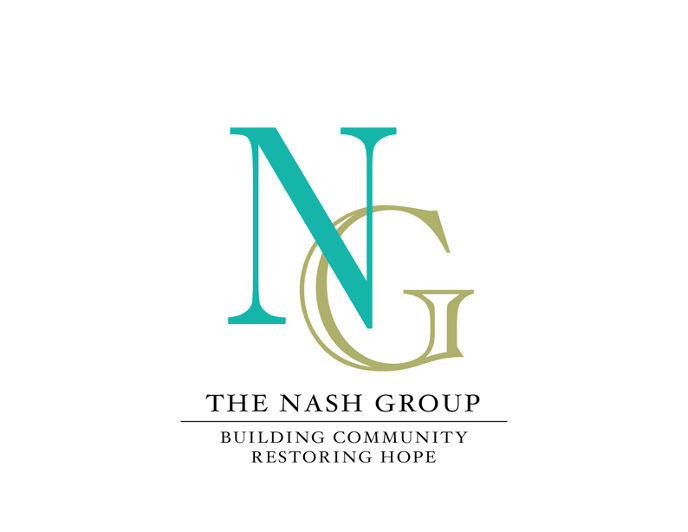Course Title: Empowering Inner-City Communities through Affordable Housing
Course Description
Join our dynamic online course on the Nash Group Training and Education Platform to explore the transformative impact of affordable housing on inner-city communities. This specialized course delves into the intricate dynamics of affordable housing in urban settings, examining its profound effects on residents, neighborhoods, and overall community well-being. Through a blend of theoretical insights, real-world case studies, and interactive exercises, participants will gain a comprehensive understanding of the challenges, opportunities, and strategies associated with promoting equitable and sustainable housing solutions in inner-city environments.
Course Topics
1. The Landscape of Affordable Housing in Inner City Communities: Trends and Challenges
2. Equity and Inclusion in Housing Policy and Planning for Urban Areas
3. Affordable Housing Development Models: Approaches for Inner City Revitalization
4. Social Impact of Affordable Housing in Inner Cities: Community Building and Cohesion
5. Financial Mechanisms and Funding Sources for Urban Housing Initiatives
6. Designing Sustainable and Equitable Housing Solutions for Inner City Residents
7. Engaging Stakeholders and Partnerships for Successful Urban Housing Projects
8. Monitoring and Evaluating the Impact of Affordable Housing Programs in Inner Cities
Learning Objectives
Upon completion of this course, participants will be able to:
1. Analyze the complex landscape of affordable housing in inner-city communities, including demographic trends, housing market dynamics, and regulatory challenges.
2. Articulate the importance of equity and inclusivity in housing policy and planning for urban areas, recognizing the need for diverse housing options that meet the needs of all residents.
3. Evaluate various affordable housing development models tailored to inner city contexts, considering factors such as density, mixed-use development, and public-private partnerships.
4. Assess the social impact of affordable housing in inner cities, exploring how housing initiatives can foster community building, improve quality of life, and promote neighborhood cohesion.
5. Identify financial mechanisms and funding sources available for urban housing initiatives, including tax incentives, grants, low-income housing tax credits, and other innovative financing options.
6. Design sustainable and equitable housing solutions for inner city residents, emphasizing principles of accessibility, affordability, energy efficiency, and cultural sensitivity.
7. Cultivate stakeholder engagement and build partnerships to drive successful urban housing projects, leveraging the expertise of community organizations, government agencies, developers, and residents.
8. Develop monitoring and evaluation frameworks to measure the impact of affordable housing programs in inner cities, tracking outcomes, assessing effectiveness, and refining strategies for ongoing improvement.
Value to the Participant
This course delivers significant value to a diverse range of clients, including urban planners, housing developers, non-profit organizations, policymakers, and community advocates working in inner-city environments. By expanding their knowledge of affordable housing and its effects on urban communities, participants gain the tools and insights needed to address housing inequities, promote social inclusion, and catalyze revitalization efforts in inner-city neighborhoods. Clients will learn to harness affordable housing as a means to create vibrant, resilient communities, enhance social cohesion, and improve the quality of life for urban residents. Additionally, this course equips clients with practical skills to navigate complex urban housing challenges, leverage funding opportunities, engage stakeholders effectively, and implement sustainable housing solutions that respond to the unique needs of inner-city populations. Ultimately, participants emerge ready to lead impactful initiatives, drive positive change, and champion affordable housing as a cornerstone of equitable urban development and community empowerment.

Office Locations
We've got two main hubs: one where the BBQ is sizzling and the jazz is smooth (Kansas City, Missouri) and another where the palm trees sway and the sunshine never quits (West Palm Beach, Florida). Come visit us and get a taste of the good life in both places!
Contact Information
Need to reach me? Try the classic phone call at
(816) 213-4461,
shoot me an email at
tnash@thenashdevelopmentgroup.com
or send a good ol' carrier pigeon my way. Just make sure it doesn't get distracted by any shiny objects along the way!
Events
Coming Soon: Upcoming Kansas City Conference
Coming Soon: Upcoming West Palm Beach Conference
Your use of the website or any of the information available on it does not constitute a professional services relationship between you and the Nash Group, LLC or its affiliates. The information provided on the website is for general informational purposes only and does not constitute professional advice or an offer to sell or a solicitation to buy securities. The Nash Group, LLC does not provide investment advice. The Nash Group, LLC's website is not to be construed as a recommendation to engage in a transaction with a particular party. You should always consult with your retained professional advisor(s) concerning your particular circumstances. Some of the information may have been provided by third parties and is based solely on information provided to The Nash Group, LLC by that third party. The Nash Group, LLC is not responsible for any information provided by third parties, and The Nash Group, LLC disclaims any responsibility for ensuring the information is accurate or up to date. Any opinions or conclusions expressed by any third party should not be construed as opinions or conclusions of The Nash Group, LLC. The Nash Group, LLC will not be liable for any loss or damage that may arise out of your use of any of the information available on the website. This website provides links to websites owned by other parties. The content of such sites is not within The Nash Group, LLC's control and The Nash Group, LLC has no responsibility for the information or content thereon.
